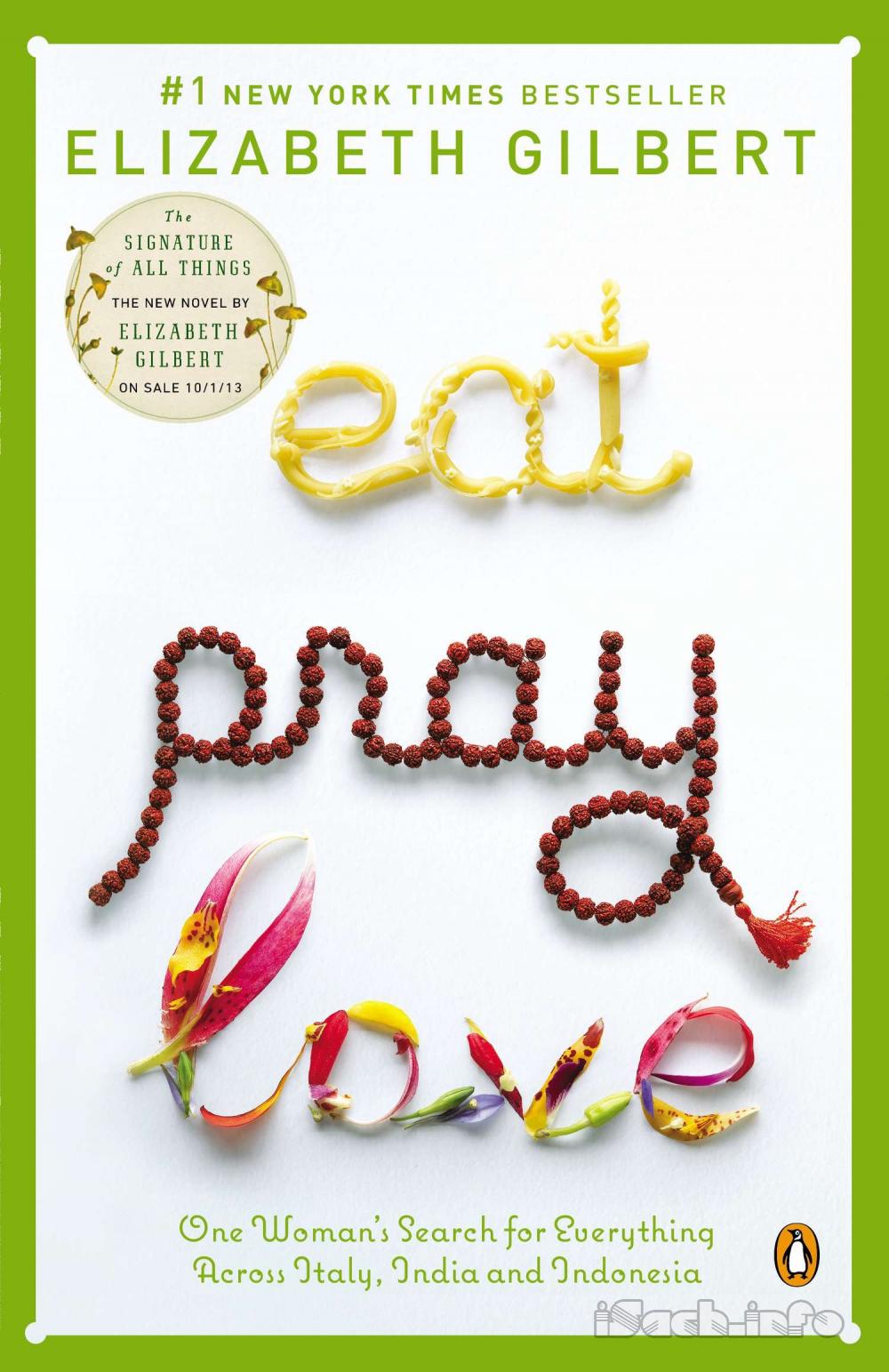Chapter 87
N
ow my days are divided into natural thirds. I spend my mornings with Wayan at her shop, laughing and eating. I spend my afternoons with Ketut the medicine man, talking and drinking coffee. I spend my evenings in my lovely garden, either hanging out by myself and reading a book, or sometimes talking with Yudhi, who comes over to play his guitar. Every morning, I meditate while the sun comes up over the rice fields, and before bedtime I speak to my four spirit brothers and ask them to watch over me while I sleep.I’ve been here only a few weeks and I feel a rather mission-accomplished sensation already. The task in Indonesia was to search for balance, but I don’t feel like I’m searching for anything anymore because the balance has somehow naturally come into place. It’s not that I’m becoming Balinese (no more than I ever became Italian or Indian) but only this—I can feel my own peace, and I love the swing of my days between easeful devotional practices and the pleasures of beautiful landscape, dear friends and good food. I’ve been praying a lot lately, comfortably and frequently. Most of the time, I find that I want to pray when I’m on my bicycle, riding home from Ketut’s house through the monkey forest and the rice terraces in the dusky late afternoons. I pray, of course, not to be hit by another bus, or jumped by a monkey or bit by a dog, but that’s just superfluous; most of my prayers are expressions of sheer gratitude for the fullness of my contentment. I have never felt less burdened by myself or by the world.
I keep remembering one of my Guru’s teachings about happiness. She says that people universally tend to think that happiness is a stroke of luck, something that will maybe descend upon you like fine weather if you’re fortunate enough. But that’s not how happiness works. Happiness is the consequence of personal effort. You fight for it, strive for it, insist upon it, and sometimes even travel around the world looking for it. You have to participate relentlessly in the manifestations of your own blessings. And once you have achieved a state of happiness, you must never become lax about maintaining it, you must make a mighty effort to keep swimming upward into that happiness forever, to stay afloat on top of it. If you don’t, you will leak away your innate contentment. It’s easy enough to pray when you’re in distress but continuing to pray even when your crisis has passed is like a sealing process, helping your soul hold tight to its good attainments.
Recalling these teachings as I ride my bike so freely in the sunset through Bali, I keep making prayers that are really vows, presenting my state of harmony to God and saying, “This is what I would like to hold on to. Please help me memorize this feeling of contentment and help me always support it.” I’m putting this happiness in a bank somewhere, not merely FDIC protected but guarded by my four spirit brothers, held there as insurance against future trials in life. This is a practice I’ve come to call “Diligent Joy.” As I focus on Diligent Joy, I also keep remembering a simple idea my friend Darcey told me once—that all the sorrow and trouble of this world is caused by unhappy people. Not only in the big global Hitler-’n’-Stalin picture, but also on the smallest personal level. Even in my own life, I can see exactly where my episodes of unhappiness have brought suffering or distress or (at the very least) inconvenience to those around me. The search for contentment is, therefore, not merely a self-preserving and self-benefiting act, but also a generous gift to the world. Clearing out all your misery gets you out of the way. You cease being an obstacle, not only to yourself but to anyone else. Only then are you free to serve and enjoy other people.
At the moment, the person I’m enjoying the most is Ketut. The old man—truly one of the happiest humans I’ve ever encountered—is giving me his full access, the freedom to ask any lingering questions about divinity, about human nature. I like the meditations he has taught me, the comic simplicity of “smile in your liver” and the reassuring presence of the four spirit brothers. The other day the medicine man told me that he knows sixteen different meditation techniques, and many mantras for all different purposes. Some of them are to bring peace or happiness, some of them are for health, but some of them are purely mystical—to transport him into other realms of consciousness. For instance, he said, he knows one meditation that takes him “to up.”
“To up?” I asked. “What is to up?”
“To seven levels up,” he said. “To heaven.”
Hearing the familiar idea of “seven levels,” I asked him if he meant that his meditation took him up through the seven sacred chakras of the body, which are discussed in Yoga.
“Not chakras,” he said. “Places. This meditation takes me seven places in universe. Up and up. Last place I go is heaven.”
I asked, “Have you been to heaven, Ketut?”
He smiled. Of course he had been there, he said. Easy to go to heaven.
“What is it like?”
“Beautiful. Everything beautiful is there. Every person beautiful is there. Everything beautiful to eat is there. Everything is love there. Heaven is love.”
Then Ketut said he knows another meditation. “To down.” This down meditation takes him seven levels below the world. This is a more dangerous meditation. Not for beginning people, only for a master.
I asked, “So if you go up to heaven in the first meditation, then, in the second meditation you must go down to . . . ?”
“Hell,” he finished the statement.
This was interesting. Heaven and hell aren’t ideas I’ve heard discussed very much in Hinduism. Hindus see the universe in terms of karma, a process of constant circulation, which is to say that you don’t really “end up” anywhere at the end of your life—not in heaven or hell—but just get recycled back to the earth again in another form, in order to resolve whatever relationships or mistakes you left uncompleted last time. When you finally achieve perfection, you graduate out of the cycle entirely and melt into The Void. The notion of karma implies that heaven and hell are only to be found here on earth, where we have the capacity to create them, manufacturing either goodness or evil depending on our destinies and our characters.
Karma is a notion I’ve always liked. Not so much literally. Not necessarily because I believe that I used to be Cleopatra’s bartender—but more metaphorically. The karmic philosophy appeals to me on a metaphorical level because even in one lifetime it’s obvious how often we must repeat our same mistakes, banging our heads against the same old addictions and compulsions, generating the same old miserable and often catastrophic consequences, until we can finally stop and fix it. This is the supreme lesson of karma (and also of Western psychology, by the way)—take care of the problems now, or else you’ll just have to suffer again later when you screw everything up the next time. And that repetition of suffering—that’s hell. Moving out of that endless repetition to a new level of understanding—there’s where you’ll find heaven.
But here Ketut was talking about heaven and hell in a different way, as if they are real places in the universe which he has actually visited. At least I think that’s what he meant.
Trying to get clear on this, I asked, “You have been to hell, Ketut?”
He smiled. Of course he’s been there.
“What’s it like in hell?”
“Same like heaven,” he said.
He saw my confusion and tried to explain. “Universe is a circle, Liss.”
I still wasn’t sure I understood.
He said. “To up, to down—all same, at end.”
I remembered an old Christian mystic notion: As above, so below. I asked. “Then how can you tell the difference between heaven and hell?”
“Because of how you go. Heaven, you go up, through seven happy places. Hell, you go down, through seven sad places. This is why it better for you to go up, Liss.” He laughed.
I asked, “You mean, you might as well spend your life going upward, through the happy places, since heaven and hell—the destinations—are the same thing anyway?”
“Same-same,” he said. “Same in end, so better to be happy on journey.”
I said, “So, if heaven is love, then hell is . . .”
“Love, too,” he said.
I sat with that one for a while, trying to make the math work.
Ketut laughed again, slapped my knee affectionately with his hand.
“Always so difficult for young person to understand this!”



 ePub
ePub A4
A4